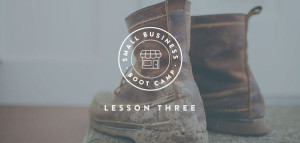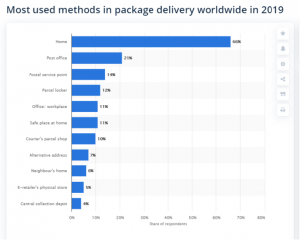
There are many things to consider when discussing the market potential for your product or service including the ability for the product, and thus the business, to produce profit and ultimately scale.
There are formal research tools out there that are designed to get at the issue of viability, with familiar names like concept testing, prototype testing, test markets and focus groups. However, these can be complex, expensive and time-consuming. For easier handling, here is a quick hit list for evaluating your ideas.
To start out, you’ll need to ask yourself some serious questions as far as market viability and potential. Is your product or service idea practical? What obstacles lie ahead? Will it need support services of some kind to ensure customer satisfaction or will the product or service do that all on its own? Beyond questions like these, use the outline below to determine if your idea will be a profitable business venture.
Consider Product Size and Weight
The size and weight of your product will have an impact on how much you sell. If the product you’re considering is large, awkwardly shaped or heavy, you are going to encounter some pretty intense shipping costs. UPS & FedEx raised prices recently. These updates will add to your cost if you select a product that’s bulky in any way.
Think that you can push the cost of shipping to your customer? Not so.
Think that you can push the cost of shipping to your customer? Not so. Shipping cost is a top reason for cart abandonment and beginning in 2014, online retailers that offered free shipping saw an increase in conversions. In fact, the whole marketplace is trending toward a free shipping offering that many publications are already calling the norm.
This is great news for consumers, who saved $ 2 billion in shipping costs from Amazon alone during the 2014 holiday season. On the other hand, free shipping is tightening profit margins across all industries. In order to stay competitive while generating revenue, your best bet is to keep your product small and minimize shipping costs.
Consider Product Fragility
Selling a durable product is more ideal than one that’s not. Fragile products need extra attention when it comes to shipping to ensure the item arrives in perfect condition.
Typically, durable products cost less to ship and lighten the customer service and reparation burden if and when your product breaks en route to the consumer. Returns and storage will require additional investment, as well.
Durable products cost less to ship and lighten the customer service and reparation burden.
In short, it’s not necessary to consider product fragility while determining your product viability, but choosing a fragile item will increase inventory costs as well as customer service needs.
Consider SKUs
Many entrepreneurs forget that even a single item can often contain multiple SKUs. A SKU, stock keeping unit, typically refers to color, size and variation of a single product. In general, the more SKUs you have, the more attention, time and money you will need to spend in tracking and maintaining inventory.
Let’s look at how a t-shirt breaks down in SKUs to get a good idea of the process. You’ll not only need to stock a variety of sizes (small, medium, large) but also colors of each size (small and red, medium and red, etc.) and perhaps even male, female and children’s sizes (small, red and women’s; medium, gray and children’s; large, blue and men’s).
The more SKUs you have, the more attention, time and money you will need to spend in tracking and maintaining inventory.
Don’t let SKUs discourage you, but do be aware of the additional costs and reparations for product mix ups during your shipping fulfillment process. Also, be aware that there are plenty of tools and resources to help you with inventory management to streamline this process.
Consider Product Lifespan
Having a consumable or disposable product is great from a business perspective because it provides you a better opportunity to earn consumer trust and build your business off of repeat sales. Consider a grocery store model. Inventory churn is high, competition is fierce, but location and price point generate loyalty, pulling in consumers on a weekly basis.
Better yet, consider the subscription box business model, in which your customer signs up for monthly deliveries and payments. Think recurring, if possible, when considering your product offering. Overall this can help lower your marketing costs and increase your average customer lifetime value.
The Downside of Pursuing Perishable Products
There are tons of successful businesses out there that sell perishable products, including:
- The Cake Store: Beautifully crafted and ornate cakes for every occasion
- Jeni’s Ice Cream: Quality, handmade frozen yogurt and icecreams with the most unique flavors
- Joe Knows Reefs: Quality rare and exotic live ocean corals
- Tortoise Supply: Live tortoises
These companies are rocking out perishables online. However, there are definitely some obstacles to overcome including storage, shipping and production. You’ll need to set proper expectations for clients as far as timelines and cost to help overcome reservations around purchasing. This is something the above online store list does very well.
For instance, what does the ordering process look like? What about timelines? What makes their online store special and why would I purchase from Tortoise Supply rather than my local pet store? Tortoise Supply specifically shares loads of details around who they are, how they take care of the animals, ship them, explain how to care for them and more. Because of their granular and transparent business practices, Tortoise Supply is considered a thought leader in the pet shop space, offering a more personalized and convenient experience than a local pet shop may be able to do.
Consider Seasonality
Product or service seasonality is generally referring to the idea that there will be different levels of demand throughout the year. Do you buy suntan lotion in winter? How about holiday decorations in the summer? Of course, there are different aspects to consider including where your target audience is located (your winter could be their summer).
Seasonality is not at all an exact science.
Seasonality is not at all an exact science and there are multiple solutions to the issue, including running timely promotions and shipping internationally, to name a few.
Also, consider your lifestyle. If you have children and know they will be out of school for the summer, perhaps having a slower period during that time would be a good thing. Who knows –– it’s just one of many items to consider regarding your product.
Consider Solving for Pain Points
Selling a product that solves for a particular pain point does not at all mean you cannot pursue a luxury item. There is plenty of room for that. Check out online stores Luxury of Watches, Ballettonet and Coast of New Zealand for some examples of lovely luxury items that also serve purpose.
That said, if you chose to pursue a product that solves a pain point or services a passion, you’ll naturally find it’s much easier to acquire customers compared to a product that is more of a luxury piece. For instance, Rock Tape solves a literal niche pain point for a large consumer segment –– athletes and those in physical therapy –– by producing a product that support your body as it moves to help avoid or alleviate physical pain and discomfort.
Consider Competition
If your items are sold locally and readily available in major retail stores like Target, WalMart, Amazon or any online powerseller, your ecommerce journey just became an uphill, snow-covered journey from the get go. This is not to say that selling an already commonly sold item isn’t doable, but the more niche your products, the less competition you’ll have. Don’t let this consideration sway you –– after all, competition can be a good thing –– just be sure to let it inform your market viability research.
Consider Yourself
Yes, on top of your product being viable with a set of customers, you should select a product or service you actually enjoy yourself. Building a successful store often requires long hours, and those can either fly by or drag on endlessly depending on how passionate you are about what you’re selling. Be passionate, find yourself a niche and start selling to other passionate people just like you.
Be passionate, find yourself a niche and start selling to other passionate people.
Next week, Small Business Boot Camp will cover restrictions and regulations to consider when opening up shop. In the meantime, complete some research and reach out to existing businesses to find out how they have problem-solved these issues. Remember, too, that just because your product or service doesn’t seem perfect as you are evaluating does not mean you need to abandon it entirely. At the same time, you don’t want to force it. Balance here is key.
Tune in next week as we continue to dive into specific areas that tend to get folks hung up when starting an online store!
(358)





